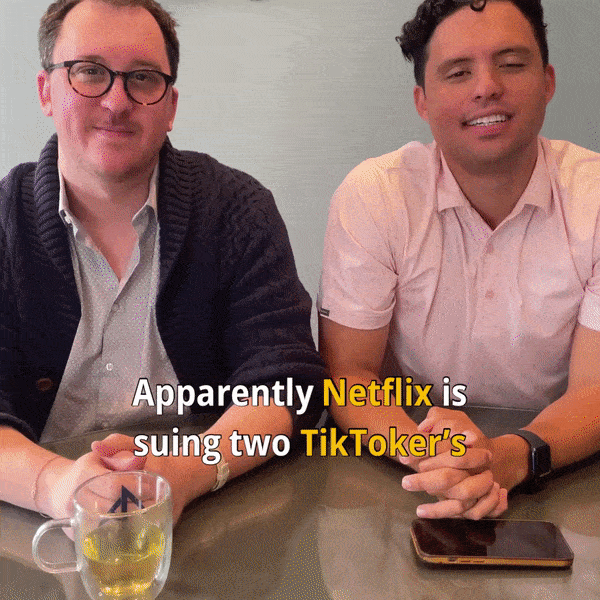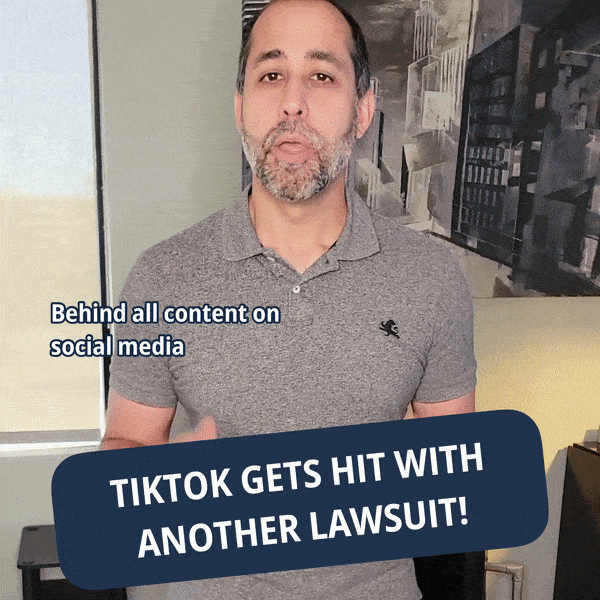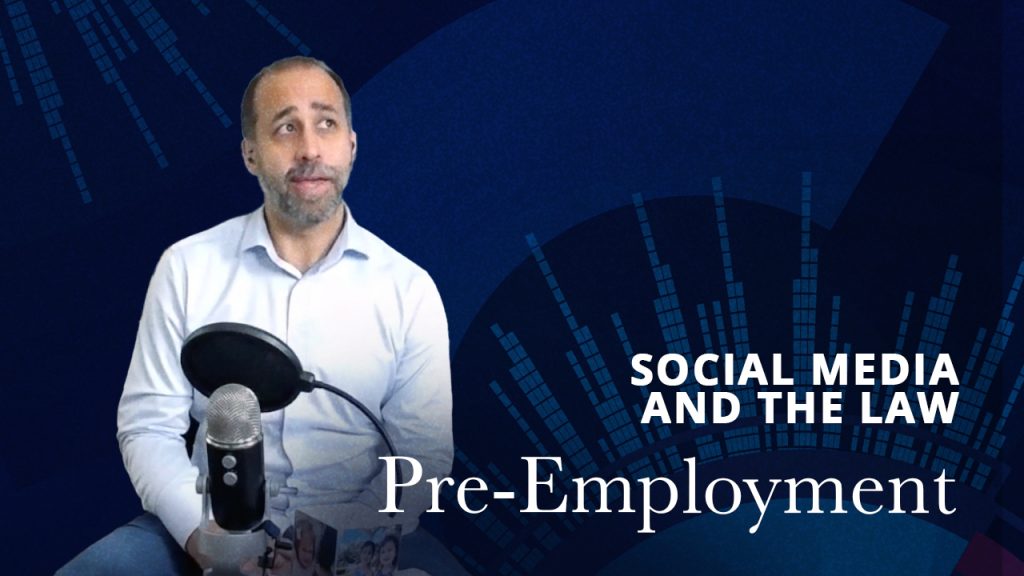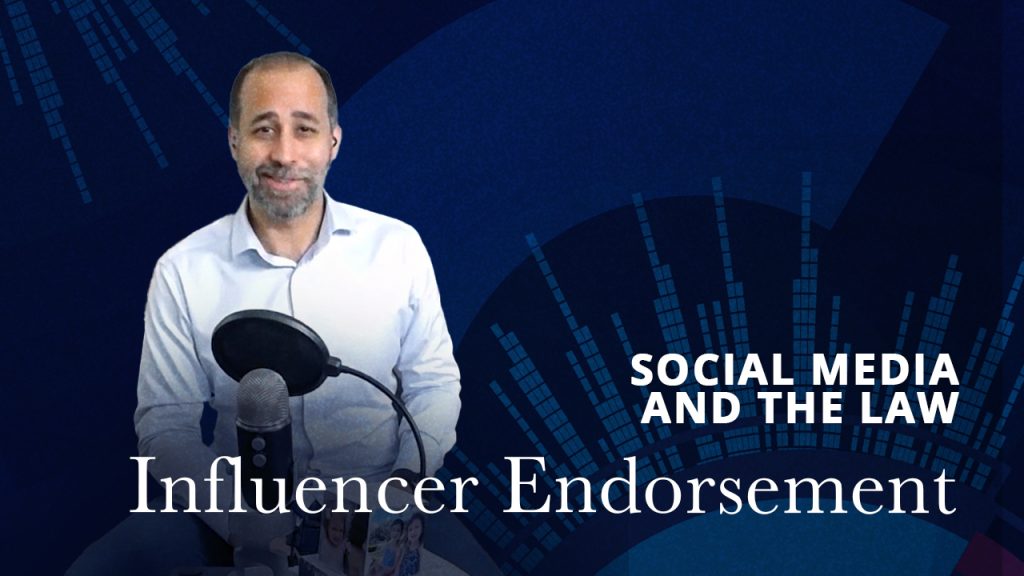“Forget about think before you drink. The new term is think before you Tweet!”
If you are running a business, you must be aware of truth-in-advertising laws, even if you do not engage in traditional forms of advertising. As of late, many businesses who fail to follow the law have been getting hit with not only warning letters from the FTC, but also fines that come out of a company’s bottom line. More specifically, those conducting business on social media are being put on notice. Failing to understand how these laws apply to your business could wind up costing you your livelihood.
“Truth-in-advertising” is a general term used not only for advertising, but general sales practices and can affect just about every aspect of your business. As always, I would advise you to consult with your legal team if you are unsure if any of these apply to you. However, I am willing to bet that only a minute percentage of people reading this will actually be exempt.
If you do not think that this applies to you, just ask Kim Kardashian her thoughts on the matter after a recent Tweet and Instagram post got her into some hot water (more on that later).
Overview of truth-in-advertising laws
Let’s get to know the Federal Trade Commission (FTC), the agency responsible for overseeing truth in advertising. Established in 1913, it enforces laws dealing with unfair or deceptive practices. It operates under the Federal Trade Commission Act (FTC Act) which gives it the authority as an administrative enforcement agency.
The purpose of the FTC and the Act is to ensure that there is fair competition and that consumers are not taken advantage of during a consumer transaction. Some of the earliest enforcement included door-to-door sales or “snake oil salesmen.” It is also the agency that must review notable mergers and acquisitions to ensure there is no monopoly.
In the United States, certain laws provide for private enforcement against you for violation. This means that not only will you face potential fines from the government, but anyone affected by your practices could bring a lawsuit against you.
In addition to federal law, several states, including California, have similar legislation.
Examples of truth-in-advertising violations
Last week I wrote about a California-based class-action lawsuit against DirecTV. The matter being discussed was actually about the right to bring litigation despite the presence of a mandatory arbitration agreement; however, the underlying case is for deceptive practices against DirecTV for what plaintiffs claim were hidden fees.
Failing to fully disclose fees in a consumer transaction is a violation of the law. In fact, thanks to the Internet, many companies have tried to manipulate electronic transactions by subscribing people for services when they were not aware about future charges. This is the “sign up for free” type bait where you will not be charged, but must leave your credit card information. If you do such tactics, you must be crystal clear to the consumer about what charges they will incur in the future and how they can opt out of such charges.
Misrepresenting a product or service is also a violation of the law. Just ask the eight sushi restaurants in Southern California who were ordered to pay fines for using crawfish, Pollock, and other fish in place of lobster. Normally this wouldn’t be an issue, except for the fact they were the main ingredients in their “lobster” rolls. One restaurant paid $14,000 while a ninth restaurant (and play close attention here) went out of business due to the violation. You can find similar cases online by searching the term “angel dusting.”
Thinking of paying someone to leave you positive reviews on Yelp? Think again! Doing so could be violating the law. If you are paying for someone to positively endorse your product or service, you are required to disclose such. If you fail to make that disclosure, you are creating an unfair advantage over your competition and also misleading consumers who believe the reviews are from unbiased people who already used your product or service.
The recent push by the FTC on social media
Advertising on social media is easily recognizable. Well….is it? The FTC has been cracking down on companies that use social media without full disclose of advertising terms. An example is celebrity brand ambassadors using Twitter to endorse a product without making notification that they are being paid to do so.
This type of “deceptive practice” is likely being targeted due to the influence of social media. After all, if your favorite celebrity endorses a particular restaurant, you are likely to go there. However, if you know they are being paid to endorse the same, you may think a little harder before you spend your hard earned money.
The FTC recently released amended guidelines for those using social media as a way to advertise or endorse a product. However, some people still don’t get it.
There are two recent examples thanks to Kim Kardashian. Yes, everyone wants to keep up with the Kardashians and companies know this. That is the reason why they employ them to push products. In 2015, Kim endorsed a drug called “Diclegis” in an interesting post on Instagram:
“OMG. Have you heard about this? As you guys know my #morningsickness has been pretty bad. I tried changing things about my lifestyle, including my diet, but nothing helped, so I talked to my doctor. He prescribed me #Diclegis, I felt a lot better and most importantly, it’s been studied and there was no increased risk to the baby.” – Kim Kardashian
The FDA did not find the post amusing and sent a warning letter to the drug manufacturer. The post was deleted soon thereafter and the fact that she failed to disclose her paid endorsement is considered by many as a violation of truth in advertising.
The warning shows that Kim still doesn’t quite get it. In 2013, she was accused of a similar incident for Tweeting an endorsement for EOS lip balm. The funny part is that now EOS is being sued for its lip balm, with plaintiff’s stating that it allegedly causes people’s skin to break out. The lawsuit actually cites celebrity endorsements in the original complaint.
This Kardashian incident was documented in The Business Insider along with other incidents by celebrities such as Justin Bieber and Miley Cirus. It also discussed how the FTC is starting to come down hard on those like Kardashian who simply fail to understand or simply don’t care about the laws.
What truth-in-advertising means for you
I like to tell people to use a common sense approach. If it walks like a duck, talks like a duck……then it’s probably something you shouldn’t do. If you feel like your terms and conditions are too small to read or are buried within a document, you are likely correct and could be in violation. If you feel that your product description is misleading, then it probably is.
In addition to breaking the law, giving an appearance of impropriety can be just as bad. Being transparent as a business will earn you trust from consumers who are more than likely to purchase from you because of your integrity.
As always, seek advice from your legal team if you are unsure if something you are doing is in violation. You can also find more information on the Federal Trade Commission website.
Have any examples other than Kardashian? Would love to hear them below.










![Social Media and the Law [e315]](https://www.pashalaw.com/wp-content/uploads/2021/10/WhatsApp-Image-2021-10-06-at-1.43.08-PM-1024x723.jpeg)




![Law in the Digital Age: Exploring the Legal Intricacies of Artificial Intelligence [e323]](https://www.pashalaw.com/wp-content/uploads/2023/11/WhatsApp-Image-2023-11-21-at-13.24.49_4a326c9e-300x212.jpg)
![Unraveling the Workforce: Navigating the Aftermath of Mass Layoffs [e322]](https://www.pashalaw.com/wp-content/uploads/2023/07/Untitled-design-23-300x212.png)
![Return to the Office vs. Remote: What Can Employers Legally Enforce? [e321]](https://www.pashalaw.com/wp-content/uploads/2023/01/Pasha_LSSB_321_banner-300x212.jpg)
![Explaining the Hans Niemann Chess Lawsuit v. Magnus Carlsen [e320]](https://www.pashalaw.com/wp-content/uploads/2022/10/LAWYER-EXPLAINS-7-300x169.png)
![California v. Texas: Which is Better for Business? [313]](https://www.pashalaw.com/wp-content/uploads/2021/07/Pasha_LSSB_CaliforniaVSTexas-300x212.jpg)
![Buyers vs. Sellers: Negotiating Mergers & Acquisitions [e319]](https://www.pashalaw.com/wp-content/uploads/2022/06/Pasha_LSSB_BuyersVsSellers_banner-300x212.jpg)
![Employers vs. Employees: When Are Employment Restrictions Fair? [e318]](https://www.pashalaw.com/wp-content/uploads/2022/05/Pasha_LSSB_EmployeesVsEmployers_banner-1-300x212.jpg)
![Vaccine Mandates Supreme Court Rulings [E317]](https://www.pashalaw.com/wp-content/uploads/2022/02/WhatsApp-Image-2022-02-11-at-4.10.32-PM-300x212.jpeg)
![Business of Healthcare [e316]](https://www.pashalaw.com/wp-content/uploads/2021/11/Pasha_LSSB_BusinessofHealthcare_banner-300x212.jpg)
![Social Media and the Law [e315]](https://www.pashalaw.com/wp-content/uploads/2021/10/WhatsApp-Image-2021-10-06-at-1.43.08-PM-300x212.jpeg)
![Defining NDA Boundaries: When does it go too far? [e314]](https://www.pashalaw.com/wp-content/uploads/2021/09/Pasha_LSSB_NDA_WordPress-2-300x212.jpg)
![More Than a Mistake: Business Blunders to Avoid [312] Top Five Business Blunders](https://www.pashalaw.com/wp-content/uploads/2021/06/Pasha_LSSB_Blunders_WP-1-300x212.jpg)
![Is There a Right Way to Fire an Employee? We Ask the Experts [311]](https://www.pashalaw.com/wp-content/uploads/2021/02/Pasha_LSSB_FireAnEmployee_Website-300x200.jpg)
![The New Frontier: Navigating Business Law During a Pandemic [310]](https://www.pashalaw.com/wp-content/uploads/2020/12/Pasha_LSSB_Epidsode308_Covid_Web-1-300x200.jpg)
![Wrap Up | Behind the Buy [8/8] [309]](https://www.pashalaw.com/wp-content/uploads/2020/11/Pasha_BehindTheBuy_Episode8-300x200.jpg)
![Is it all over? | Behind the Buy [7/8] [308]](https://www.pashalaw.com/wp-content/uploads/2020/09/iStock-1153248856-overlay-scaled-300x200.jpg)
![Fight for Your [Trademark] Rights | Behind the Buy [6/8] [307]](https://www.pashalaw.com/wp-content/uploads/2020/07/Fight-for-your-trademark-right-300x200.jpg)
![They Let It Slip | Behind the Buy [5/8] [306]](https://www.pashalaw.com/wp-content/uploads/2020/06/Behind-the-buy-they-let-it-slip-300x200.jpg)
![Mo’ Investigation Mo’ Problems | Behind the Buy [4/8] [305]](https://www.pashalaw.com/wp-content/uploads/2020/05/interrobang-1-scaled-300x200.jpg)
![Broker or Joker | Behind the Buy [3/8] [304] Behind the buy - Broker or Joker](https://www.pashalaw.com/wp-content/uploads/2020/04/Joker-or-Broker-1-300x185.jpg)
![Intentions Are Nothing Without a Signature | Behind the Buy [2/8] [303]](https://www.pashalaw.com/wp-content/uploads/2020/04/intentions-are-nothing-without-a-signature-300x185.jpg)
![From First Steps to Final Signatures | Behind the Buy [1/8] [302]](https://www.pashalaw.com/wp-content/uploads/2020/04/first-steps-to-final-signatures-300x185.jpg)
![The Dark-side of GrubHub’s (and others’) Relationship with Restaurants [e301]](https://www.pashalaw.com/wp-content/uploads/2015/04/When-Competition-Goes-Too-Far-Ice-Cream-Truck-Edition-300x201.jpg)
![Ultimate Legal Breakdown of Internet Law & the Subscription Business Model [e300]](https://www.pashalaw.com/wp-content/uploads/2019/05/Ultimate-Legal-Breakdown-of-Internet-Law-the-Subscription-Business-Model-300x196.jpg)
![Why the Business Buying Process is Like a Wedding?: A Legal Guide [e299]](https://www.pashalaw.com/wp-content/uploads/2019/03/futura-300x169.jpg)
![Will Crowdfunding and General Solicitation Change How Companies Raise Capital? [e298]](https://www.pashalaw.com/wp-content/uploads/2018/11/Will-Crowdfunding-and-General-Solicitation-Change-How-Companies-Raise-Capital-300x159.jpg)
![Pirates, Pilots, and Passwords: Flight Sim Labs Navigates Legal Issues (w/ Marc Hoag as Guest) [e297]](https://www.pashalaw.com/wp-content/uploads/2018/07/flight-sim-labs-300x159.jpg)
![Facebook, Zuckerberg, and the Data Privacy Dilemma [e296] User data, data breach photo by Pete Souza)](https://www.pashalaw.com/wp-content/uploads/2018/04/data-300x159.jpg)
![What To Do When Your Business Is Raided By ICE [e295] I.C.E Raids business](https://www.pashalaw.com/wp-content/uploads/2018/02/ice-cover-300x159.jpg)
![General Contractors & Subcontractors in California – What you need to know [e294]](https://www.pashalaw.com/wp-content/uploads/2018/01/iStock-666960952-300x200.jpg)
![Mattress Giants v. Sleepoplis: The War On Getting You To Bed [e293]](https://www.pashalaw.com/wp-content/uploads/2017/12/sleepopolis-300x159.jpg)
![The Harassment Watershed [e292]](https://www.pashalaw.com/wp-content/uploads/2017/12/me-2-300x219.jpg)
![Investing and Immigrating to the United States: The EB-5 Green Card [e291]](https://www.pashalaw.com/wp-content/uploads/2012/12/eb-5-investment-visa-program-300x159.jpg)
![Responding to a Government Requests (Inquiries, Warrants, etc.) [e290] How to respond to government requests, inquiries, warrants and investigation](https://www.pashalaw.com/wp-content/uploads/2017/10/iStock_57303576_LARGE-300x200.jpg)
![Ultimate Legal Breakdown: Employee Dress Codes [e289]](https://www.pashalaw.com/wp-content/uploads/2017/08/Ultimate-Legal-Breakdown-Template-1-300x159.jpg)
![Ultimate Legal Breakdown: Negative Online Reviews [e288]](https://www.pashalaw.com/wp-content/uploads/2017/06/Ultimate-Legal-Breakdown-Online-Reviews-1-300x159.jpg)
![Ultimate Legal Breakdown: Social Media Marketing [e287]](https://www.pashalaw.com/wp-content/uploads/2017/06/ultimate-legal-breakdown-social-media-marketing-blur-300x159.jpg)
![Ultimate Legal Breakdown: Subscription Box Businesses [e286]](https://www.pashalaw.com/wp-content/uploads/2017/03/ultimate-legal-breakdown-subscription-box-services-pasha-law-2-300x159.jpg)
![Can Companies Protect Against Foreseeable Misuse of Apps [e285]](https://www.pashalaw.com/wp-content/uploads/2017/01/iStock-505291242-300x176.jpg)
![When Using Celebrity Deaths for Brand Promotion Crosses the Line [e284]](https://www.pashalaw.com/wp-content/uploads/2017/01/celbrity-300x159.png)
![Are Employers Liable When Employees Are Accused of Racism? [e283] Racist Employee](https://www.pashalaw.com/wp-content/uploads/2016/12/Are-employers-liable-when-an-employees-are-accused-of-racism-300x159.jpg)
![How Businesses Should Handle Unpaid Bills from Clients [e282] What to do when a client won't pay.](https://www.pashalaw.com/wp-content/uploads/2016/12/How-Businesses-Should-Handle-Unpaid-Bills-to-Clients-300x159.png)
![Can Employers Implement English Only Policies Without Discriminating? [e281]](https://www.pashalaw.com/wp-content/uploads/2016/11/Can-Employers-Impliment-English-Only-Policies-Without-Discriminating-300x159.jpg)
![Why You May No Longer See Actors’ Ages on Their IMDB Page [e280]](https://www.pashalaw.com/wp-content/uploads/2016/10/IMDB-AGE2-300x159.jpg)
![Airbnb’s Discrimination Problem and How Businesses Can Relate [e279]](https://www.pashalaw.com/wp-content/uploads/2016/09/airbnb-300x159.jpg)
![What To Do When Your Amazon Account Gets Suspended [e278]](https://www.pashalaw.com/wp-content/uploads/2016/09/What-To-Do-When-Your-Amazon-Account-Gets-Suspended-1-300x200.jpg)
![How Independent Artists Reacted to Fashion Mogul Zara’s Alleged Infringement [e277]](https://www.pashalaw.com/wp-content/uploads/2016/08/How-Independent-Artists-Reacted-to-Fashion-Mogul-Zaras-Alleged-Infringement--300x159.jpg)
![Can Brave’s Ad Replacing Software Defeat Newspapers and Copyright Law? [e276]](https://www.pashalaw.com/wp-content/uploads/2016/08/Can-Braves-Ad-Replacing-Software-Defeat-Newspapers-and-Copyright-Law-300x159.jpg)
![Why The Roger Ailes Sexual Harassment Lawsuit Is Far From Normal [e275]](https://www.pashalaw.com/wp-content/uploads/2016/07/WHY-THE-ROGER-AILES-SEXUAL-HARASSMENT-LAWSUIT-IS-FAR-FROM-NORMAL-300x159.jpeg)
![How Starbucks Turned Coveted Employer to Employee Complaints [e274]](https://www.pashalaw.com/wp-content/uploads/2016/07/iStock_54169990_LARGE-300x210.jpg)
